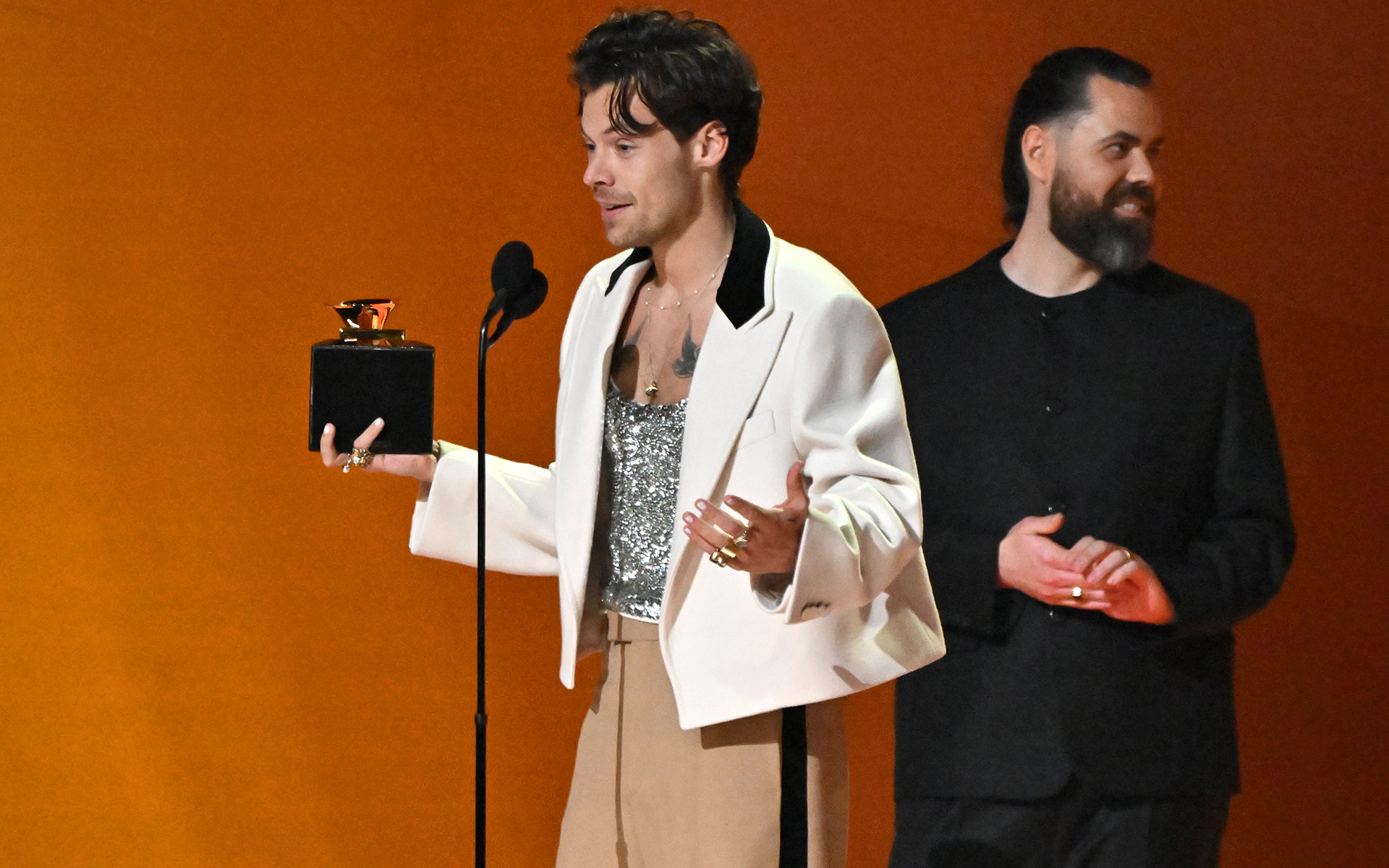“This doesn’t happen to people like me very often,” Harry Styles said accepting the Album of the Year award at this year’s Grammys for his excellent Harry’s House. “It’s so, so nice. Thank you!” He seemed honestly moved and appreciative, and sincerely complimented the rest of the records in his category. It was a humble response from a young man who does, genuinely, seem to be grateful for a success he doesn’t take for granted.
The problem is, he’s wrong. This kind of thing happens to people like Harry Styles – young, white, male, cis-gendered, straight, middle class – all the time. As good as Harry’s House is, it’s probably the most predictable choice possible for the album of the year, much as it is for the upcoming Brit Awards.
It’s another example of the music industry’s default setting – success is white, affluent and safe – which is especially true of the Grammys. Styles may play daringly and fabulously with gender norms in his fashion choices, but he’s doing so onstage at Wembley, not walking down the high street being heckled by passers-by. He comes from a nice family (his mum and late stepfather were landlords, his dad works in finance), and went to a nice school. He’s from a very nice village in Cheshire. When he was 16 he joined a boyband and he’s not wanted for anything since. It’s hard to think of anyone more privileged than Harry Styles. He is the absolute prototype for the sort of person this happens to.
The elephant in the room here, the thing that’s made people really furious, is that the award was widely expected to go to Beyoncé for her latest album Renaissance. This is the fourth Beyoncé album to be snubbed for album of the year at the Grammys, each time she’s been beaten by a white artist: Taylor Swift, Adele, Beck and now Harry Styles.
Each time it felt faintly unbelievable. Adele was so shocked when 30 beat Lemonade, arguably Bey’s masterpiece, that she could barely keep it together onstage. Renaissance, another undeniably great record, was supposed to finally give Beyoncé the industry’s ultimate recognition. As Rolling Stone’s Larisha Paul told Teen Vogue last week, “If Renaissance doesn’t win, I think it will be a massive blow to what little credibility the Recording Academy still has as an institution that engages with Black music on any meaningful level.”
- Beyoncé fans enraged as some tickets cost more than a month’s rent
- Can the BRIT Awards honestly say George Ezra is better than every female musician in the UK?
- Wet Leg: ‘It makes me proud to be fighting the good fight’
In 66 years of the Grammys, only 15 Black artists have won Album of the Year, ostensibly the top prize at the awards. The Recording Academy, the body of industry insiders that vote for the awards, chose Billie Eilish over Lizzo and Lil Naz X, Taylor Swift over Kendrick Lamar, Kacey Musgraves over Janelle Monáe, U2 over Kanye West. Most bafflingly they chose Mumford and Sons over Frank Ocean. Black artists are allowed to do well in the R&B, Rap and Reggae categories, maybe sometimes in the pop and vocal performance categories, but the biggest awards seem ring-fenced. Harry Styles, through no fault of his own, is a beneficiary of that privilege.









